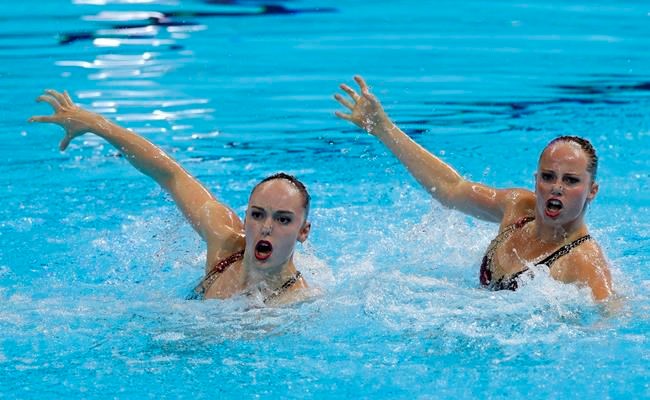Canada Artistic Swimming says it plans to "rip off the band-aid" in a widespread effort to build a better culture and safer space for its athletes.
The national sport organization released results of an independent investigation on Friday, after complaints of harassment and a culture of fear in the team's training centre in Montreal.
While the investigation, which included interviews with all 18 athletes, plus 10 members of the coaching and support staff, found no instances of physical abuse, sexual abuse or hazing, 44 per cent of respondents said they'd witnessed or experienced psychological abuse by coaches, staff or other athletes, while 39 per cent of respondents said they'd witnessed bullying.
Jackie Buckingham, CEO of Canada Artistic Swimming (CAS), said this is an opportunity for change.
"We're going straight through the organization, right down to the club coaches that teach recreational programming, everybody is going to be impacted by this," Buckingham said. "Because we really believe that this is much bigger than just what's happening at our national team. This is coaching in general, it's coaching in our sport, it's coaching in all sport."
Montreal's national training centre for the sport - formerly known as synchronized swimming - closed for the review, and will remain closed until the CAS has ironed out plans for its reintegration process.
"There's a lot of emotional damage that's been created, so we're going to spend some time and try to rebuild those working relationships," Buckingham said. "We've got a process of facilitated sessions that we're mapping out, to work through what we know is going to be those emotional after-effects.
"So we haven't put a target date on the return. We don't want to put pressure on that process, we want that process to evolve at a pace that it needs to so when we do come back to the training centre, everyone’s in a good mental state. . . and some of those working relationships have hopefully been repaired to the point where when they do get in the pool there will be some trust again."
There won't be an immediate change in the national team's coaching staff, however.
"The coaching staff will remain in place as CAS implements its action plan," the organization said in a statement.
All national sport organizations funded by Sport Canada must adopt and integrate Canada's new Universal Code of Conduct to Prevent and Address Maltreatment in Sport.
The recommendations from the CAS review include improving coach and support staff's commitment to reporting mechanisms; mental health awareness and education; diversity and inclusion awareness and education; harassment and bullying prevention; and coach education around respectful communication.
"The best thing that we can do is to take the opportunity that we have, and make the most of it," Buckingham said. "Let's reinvent our whole entire organization, because this is our one chance when the spotlight is on it. And we have a reason to bring this messaging through our whole sport, So we're going to do it."
With the COVID-19 restrictions, and the recent closing of the national training centre, athletes are largely training on their own in Montreal, Toronto, Calgary and Saskatchewan.
This report by The Canadian Press was first published Oct. 30, 2020.
Lori Ewing, The Canadian Press




